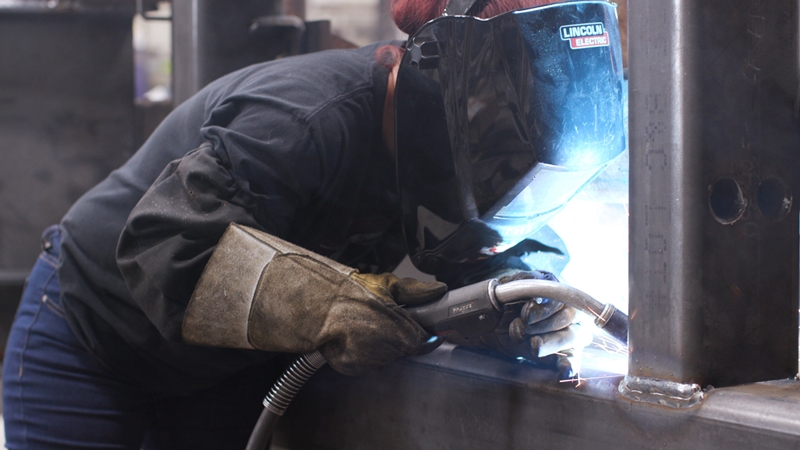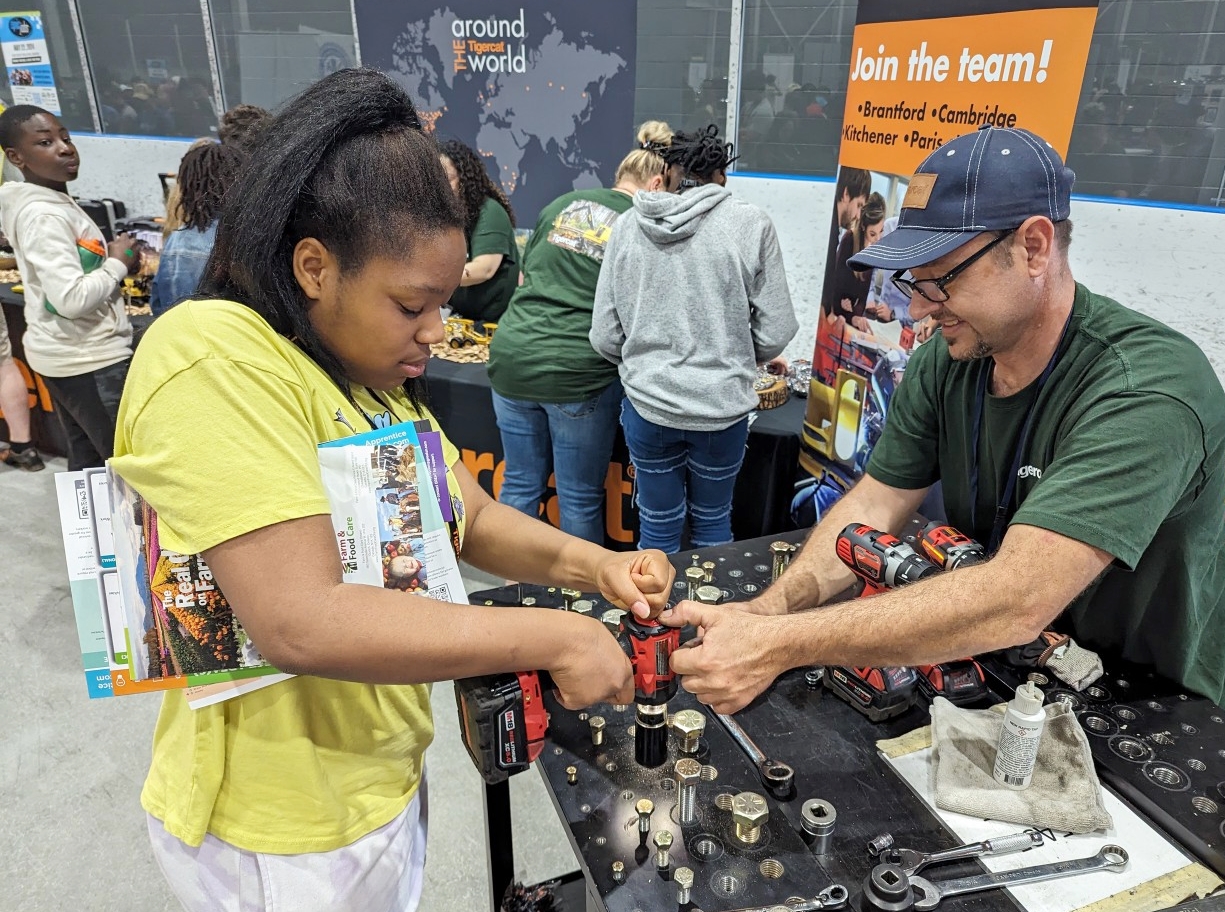
Big opportunities to work in trades careers
There are big opportunities for careers in the trades, with strong demand, lots of jobs and good wages.
There are so many opportunities that even people who’ve never considered the trades should take a look.
Skilled trades workers build and maintain infrastructures like our homes, schools, hospitals, roads, farms and parks. They keep industries running and perform many services we rely on every day. Their work requires a great amount of skill and skilled tradespeople often use advanced, modern technology.
Strong demand
There is strong demand right now from local employers for people to work in skilled trades jobs. And that demand is expected to remain strong for years to come, especially as people in their 50s and 60s who are currently working in the trades retire.
Strong stability
Stability goes hand in hand with demand. Since the demand is expected to continue for many years, people working in the trades should see good job security and stable careers
Strong wages
Wages for the trades are strong and it’s possible to make above average.
Here are some examples of skilled trades positions in high demand in the Grand Erie region that includes Brantford, Six Nations, New Credit and the counties of Brant, Haldimand and Norfolk.
Construction Electrician: Install, troubleshoot and repair electrical wiring and equipment, such as wiring a new home or building. These electricians usually work for contractors or may be self employed. Median annual salary: $65,000.
Industrial Electrician: Install, troubleshoot and maintain electrical equipment in factories. These electricians may work directly for the company or may work for a contractor. Median annual salary: $69,000.
Millwright: Maintain and repair industrial machinery and equipment, such as machines used by manufacturers to make products. Some millwrights work for contractors who are called into factories, while others may work directly for the manufacturer. Median annual salary: $67,000.
Plumber: Install and repair plumbing in a wide variety of settings, including homes, buildings and factories. Some work for contactors or are self employed. Median annual salary: $64,000.
Welder: Weld metals for a wide variety of purposes, such as structural steel used in buildings or joining parts together. Welders work in a variety of settings, from large manufacturers to small welding shops. Welding is sometimes a stepping stone to other skilled trades. Median annual salary: $45,000.
Machinists: Set up and operate machine tools to make products out of metal, plastic or other material. They are employed in manufacturing, such as automotive parts making, plastics products, and more. Median annual salary: $53,000.
Auto service technician: Maintain and repair cars, trucks and buses. Technicians may work for a car dealership or a garage, or may own their own business. Some people specialize in transport trucks or buses. Median annual salary: $51,000.
NEGATIVE STIGMA
Despite the positives, many businesses are having trouble attracting people to work in the trades.
One major reason is the negative stigma about the trades. Many young people are not exposed to the trades and never find out about the opportunities.
Other youth are discouraged from pursuing their interests, either by parents or teachers, because the skilled trades are viewed incorrectly as repetitive, dirty, dangerous, low-paying career options. Students in high school may only be encouraged to look at the trades if they struggle with academics or deemed unsuitable for college or university.
Main factors contributing to labour shortages in the skilled trades include:
- Stigma around the trades
- Students’ limited exposure to the trades
- Impact of retirements
- The soft skills gap (not prepared for work, poor attitudes regarding work)
- Inadequate training (Mentors not prepared/skilled to train apprentices/incompatibility with apprentice)
- Learn more by looking at our 2019 In-Demand Skilled Trades Study and Report
JOB SATISFACTION
People who work in the skilled trades have high job and career satisfaction.
According to research from Job Talks, a Canadian website that promotes the trades:
- 73 per cent of skilled trades workers feel that they put in an honest days’ work most days, as compared to 66 per cent for the rest of Canadian workers;
- 68 per cent of skilled trades workers said that their work gives them a sense of success and achievement, as compared to 49 per cent of the rest of Canadian workers;
- 60 per cent said that they often have fun while they are working versus 43 per cent in other professions;
PATHWAYS INTO THE TRADES
There are a number of routes people can take to get the training and education needed to get into the trades.
Secondary School: Students in high school may have an opportunity to take a Specialized High School Major in a trade or may go on a co-op placement. Students may also be able to take pre-apprenticeship training while in high school through an Ontario Youth Apprenticeship Program (OYAP) program.
Community college: Local colleges such as Conestoga College, Fanshawe College, Mohawk College and Six Nations Polytechnic offer training programs in a wide variety of trades. This includes a number of apprenticeship programs.
Apprenticeships: People who are hired by businesses as an apprentice learn both on the job and at school, completing a specific number of in-class hours. This allows people to earn money while they learn and while they advance at a company. Those interested in an apprenticeship can register with ApprenticeshipSearch.com to explore the skilled trades and to find an employer.
RESEARCH TRADES CAREERS
There are many online resources for anyone who wants more information about working in the trades in Ontario and Canada.
To get an idea of how many jobs there are in any occupation in the trades, search Grand Erie Jobs, our region’s largest job board. The job board can also be used to identify which local businesses hire for the trades.
Watch this short video from the Government of Ontario about working in the trades.
The organizations Skills Ontario and Careers in Trades promote the trades and have lots of information.








